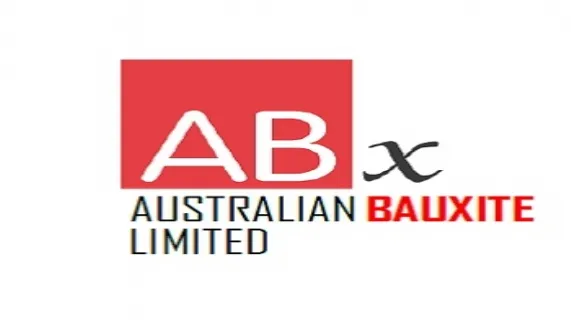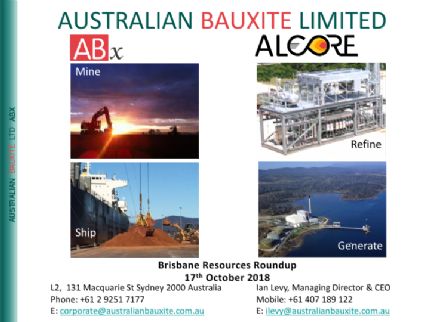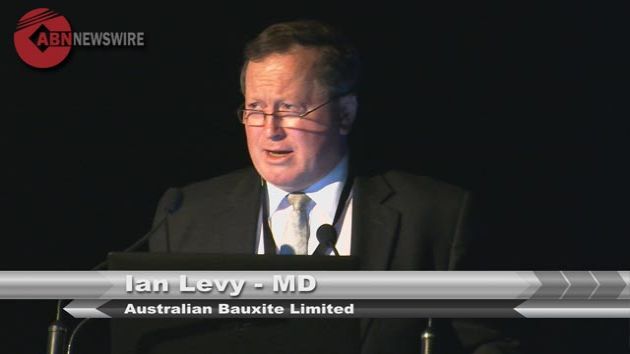
ABx Bauxite Sales Strategy Avoids Market Glut Problems
Sydney, Dec 22, 2016 AEST (ABN Newswire) - Australian Bauxite Ltd ( ASX:ABX) (ABx) currently sells bauxite into cement and fertiliser markets at prices higher than could be achieved in the over-supplied metallurgical bauxite market.
ASX:ABX) (ABx) currently sells bauxite into cement and fertiliser markets at prices higher than could be achieved in the over-supplied metallurgical bauxite market.
There have been developments in the metallurgical bauxite market in the last few days which indicate that the metallurgical bauxite market could worsen further due to a glut of new supply during 2017 (see below).
ABx diversification avoids the metallurgical market glut
The clean chemistry of ABx's bauxite allowed ABx to sell cement-grade bauxite which:
1. Consistently increases the late strength of concrete;
2. Is quartz-free & salt-free for corrosion-resistance;
3. Eliminates stoppages & pressure problems in kilns, lowers kiln temperatures & reduces emissions.
Many cement manufacturing plants are converting from coal-fired to gas-fired production which increases demand for cement-grade bauxite to add aluminium oxide and lesser amounts of iron oxide that would normally have been provided by the coal.
Infrastructure construction in USA is increasing demand
North American cement-grade customers are advising that the rate of construction of North America's infrastructure is set to grow rapidly in 2017 which is making cement-makers seek ways to maximise output by eliminating stoppages and by increasing late strength of the cement. ABx's cement-grade bauxite does both.
ABx's recent 5-fold increase in the resource tonnages at its Fingal Rail Project shows that ABx can enter into long-term contracts with major cement-grade customers, subject to satisfactory contract terms which are currently being negotiated.
TasTech: ABx has increased testwork on the TasTech technology that separates ABx's bauxite into its 3 product-components: metallurgical-grade, cement-grade and fertiliser-grade bauxite. During this research, ABx encountered two additional technologies that can produce pure bauxite and high-value products. Testwork will continue throughout 2017 with the objective to commence production in the 2017/18 Summer period.
Chinese metallurgical bauxite market to November rose off the lows of mid-2016 but new suppliers in 2017 could mean metallurgical market will be grossly oversupplied.
- Imported tonnes down 40% since Dec'15 and prices remain stable at US$48.74/t.
- Malaysian tonnages down to only 0.26Mt of low-value bauxite averaging US$37.70/t
- Guinean Bauxite keeps flooding into China: 1.18Mt at a low price of US$56.93/t CIF price
- Indian Bauxite supply is rebuilding to 0.20Mt as Chinese refineries buy Guinean bauxite instead.
Recent new developments increase potential for a glut of metallurgical bauxite in 2017
- Alcoa has been given permission to export 2.5 million tonnes of metallurgical bauxite per annum from its WA operations for the next 5 years
- Indonesia is showing signs of relaxing its ban on exports of bauxite.
Australian bauxite is dominating at 2.05Mt or 48% of the total, mainly from Rio's Weipa and Gove mines. Australian bauxite prices are falling as Rio buys market share?
Indian bauxite sales into China have begun rising slowly as Indian-type gibbsite-trihydrate bauxite has been replaced by Guinea bauxite whilst it is cheap and shipping costs are low. Prices are low at US$37.53/t.
Bauxite from Guinea in West Africa floods into China at 1.184Mt in October at US$56.93/t CIF China.
Malaysian bauxite supply fell 62% to only 261,000 tonnes in October as Malaysian producers struggle to achieve grades above 45% Al2O3 by washing its bauxite. The 15% collapse in Malaysian prices to US$37.70/t CIF China, is unsustainably low, except for cowboy operators.
Commentary on Market Situation
Cheap Malaysian bauxite from unregulated mines, opportunistic dumping of bauxite from Guinea in West Africa and Rio's increased shipments from northern Australia has oversupplied the Chinese metallurgical bauxite market. Prices naturally will remain weak for some time, possibly for 12 to 18 months.
New Threats: If Alcoa injects an additional 2.5 million tonnes each year into the market and Indonesia relaxes its ban on bauxite exports and exports of cheap Indonesian bauxite recommence, it is hard to see any reason why metallurgical bauxite prices will rise in 2017. Prices for metallurgical bauxite may remain in the doldrums until 2018?
As the global economy recovers, shipping costs will rise and dumping of bauxite from Guinea will slow down and China will return to being supplied from its reliable suppliers in the Indo-Pacific basin.
ABx Strategy: sell into the best market until China recovers: CEMENT IS GETTING STRONGER
ABx monitors the markets and plans to enter the metallurgical bauxite market when bauxite prices increase to profitable levels, especially when Northern Hemisphere supplies are constrained by wet seasons.
In the meantime, ABx will grow its business by supplying cement-grade bauxite for making high specification cement and supplying fertiliser-grade bauxite for making single superphosphate fertiliser.
ABx is accelerating the development of TasTech technology which allows ABx to separate Tasmanian bauxite into 3 product-types at good tonnages all year round, namely:
1. high grade metallurgical-grade gibbsite bauxite exceeding 45% Al2O3 for the aluminium industry
2. cement-grade bauxite for the production of cement
3. fertiliser-grade and other bauxite-types.
ABx's cement-grade bauxite markets are wherever cement kilns have stopped using coal and started using gas as the energy source or are operating at near full capacity and want to increase throughput by using our bauxite in their feed.
Coal ash previously supplied the Al2O3 and some of the Fe2O3 needed for making Portland cement. ABx can now provide both Al2O3 and Fe2O3 in a tailor-made single bauxite product which processes superbly through the cement kilns and makes extra-strong, corrosion-resistant cement, stops kiln blockages, reduces fuel consumption and saves wear and tear on the kiln refractory brick linings.
Several North American cement-grade bauxite customers are reporting very bullish outlooks for high-strength cement as a result of the election of Donald Trump as the next US President who has stressed the need for a major rebuilding of the infrastructure in the USA. ABx will be a beneficiary should this promise become reality.
To view tables and figures, please visit:
http://abnnewswire.net/lnk/N83VD97N
About ABx Group Limited
 ABx Group Limited (ABx) (ASX:ABX) is a uniquely positioned Australian company delivering materials for a cleaner future.
ABx Group Limited (ABx) (ASX:ABX) is a uniquely positioned Australian company delivering materials for a cleaner future.
The three priority projects are:
- Heavy rare earths: Supplying light and heavy rare earths from Tasmania into Western supply chains
o Processing Options Analysis conducted in partnership with external experts
- Clean fluorine chemical production: Producing industrial chemicals from aluminium smelter by-product (ALCORE)
o Continuous pilot plant under construction in Bell Bay, Tasmania
- Near-term bauxite production: Mining bauxite resources for the aluminium, cement and fertiliser industries
o Agreements executed with Good Importing International for bauxite projects in Queensland and New South Wales, and $2.7 million initial payment has been received
o Approvals well advanced for DL130 bauxite project in northern Tasmania
ABx endorses best practices on agricultural land and strives to leave land and environment better than we find it. We only operate where welcomed.
| ||
|









